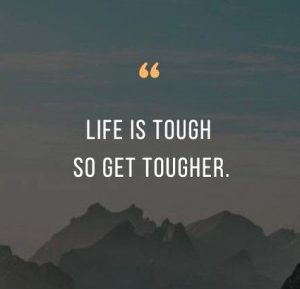《自律養生實踐家之旅339》 我這一生

成為人之後,我們接受人間的洗禮,吸收塵世所賦予的一切資糧,環境所賦予的價值觀理所當然的鎖進生命藍圖之中。
走了不算短的一段時光,我卻從未真正思索過:「這只是一趟旅程」。知道人終將一死,卻很少探討:來到人間的目的何在?這有限的旅程,究竟意義何在?
有人來到世上,是為了在戰場上為國捐軀;有人則在奪走他人性命之後,終身困於鐵窗。這些都是結果論,他們的存在不該只是為了早逝或身陷囹圄。
如果要在「二十歲為國捐軀」與「八十歲病死獄中」之間選一,我們大多會選擇前者。畢竟,貪生怕死從來不是多數人的選項。
而生命給了我第三種選擇:生長於承平時代,可以成為守法守紀的平凡之人。這是何其有幸的前提,更使我領悟:人生的方向,不應是追逐榮華富貴,而是留下典範。
我一向習慣傾聽潛意識的聲音,也可稱之為直覺。回首當年,我佩服自己毅然離開台大去讀北醫的決定,也佩服自己放棄亞東醫院、選擇陽明醫學院的勇氣。
每一個重大抉擇都牽動人生的走向,而在遵循內心的同時,我仍背負著原生家庭追求功成名就的投射。
必須承認,在功成名就之後,還有榮華富貴的影像,而我母親的心願,正是希望我們能擁有這些「東西」。
我並非刻意捨棄物慾,而是生命一次又一次透過事件提醒我:我的人生並不需要這些。我所該做的,是把自身的能力奉獻給生命中的有緣人。
在人生路上,我不斷收到信息,提醒我珍惜人身。原生家庭的「附加價值」,就是親身為我示範病痛,並揭露人性在病痛中的醜陋。
我這一生最巧妙的安排,便是一路觀察醫藥與疾病。甚至連軍旅,也被命運刻意送進軍方醫院,讓我更加看穿醫療的傲慢與自大。
我這一生,宛如搭著便車的迷路旅人,司機去哪裡,我就跟著去哪裡。半世紀的探索過後,天空劃過一道閃電,我忽然覺悟,該是坐上駕駛座的時候了。
讓我醍醐灌頂的與其說是斷食,不如說是身體。它給予我極為重要的指令,而我後來才明白,那是來自上帝的賜予。身體告訴我,它具備遠離病痛的一切能力,它需要的,只是「自主」。
生命之路,一路皆由直覺引領。即使偶有誤判,即使結局不盡如人意,那也是必經的渠道。身體告訴我它需要自主,在此之前,靈性也早已提醒我需要自主。
我才明白,唯有放下前半生的沾染,才能擁抱真正的自由。
因果牽纏,恩怨未了,想要總結,渴望了結,卻知在有限餘生中要完成未竟之事並不容易。坦白說,有點難,可是似乎又不會太難。
難,是一種認定。努力能克服困難,時間能稀釋困難。還記得內湖老家的山坡路給我的啟示:走路運動,要有點喘,又不能太喘。
當我聽懂身體的指示,明白「一段時間不吃」的修煉,克服的關鍵就在於:認清它的「難」,再以更高的視野看見它的「易」。
我曾在〈難,怎麼辦?〉一文中寫下:「脫離困難的唯一途徑,是穿越它。」與身體合作的最重要關鍵,是「去做」而不是「去想」。
「容易」往往是做過之後的結論,而「困難」則多是想像出來的障礙。
有些事一人無力完成,就讓更多人合力。要在遠離身體的社會環境裡推廣「身體之道」,難度極高,這件工程沒有訣竅,只有靠眾人的力量,持續去做。
我從未設想要成為「斷食教練」,也未曾打算為「肝膽淨化」代言。但我慶幸,也榮幸,身體與生命的自主因此進入許多人的生命之中。
深知身體的能耐,卻無力高調推進。所做之事,往往違背大眾認知;所走之路,多半無法獲得親友認同。
可我始終相信,會有人憑直覺與身體的指引,主動前來相聚。
我這一生,註定要在低調卻充滿自信的道路上,匍匐前行。
這一生,回饋生命對我的厚愛,我將它獻給珍惜生命的你,獻給尊重大自然的你。
(生命很艱難,所以要更堅強。)
My Life
After becoming human, we undergo the baptism of the world, absorbing all the provisions that earthly life bestows upon us. The values imposed by our surroundings are naturally locked into the blueprint of our existence.
Through a not-so-short span of time, I had never truly pondered: “This is but a journey.” I knew that all men must die, yet I seldom questioned: What is the purpose of coming into this world? What meaning lies within this finite journey?
Some are born only to sacrifice themselves for their country on the battlefield; others, after taking another’s life, spend their remaining years behind bars. But these are conclusions drawn in hindsight. Their existence was never meant solely for early death or lifelong confinement.
If given the choice between dying a hero at twenty or perishing in prison at eighty, most of us would choose the former. After all, clinging to life at any cost has never been humanity’s preferred option.
Yet life granted me a third path: to grow up in an era of peace and become an ordinary, law-abiding man. What a fortunate premise! And through it, I realized: the true direction of life is not the pursuit of wealth and glory, but the legacy of setting an example.
I have always been accustomed to listening to the voice of the subconscious—what some may call intuition. Looking back, I admire my own resolve in leaving National Taiwan University for Taipei Medical University, and later, the courage to turn down Far Eastern Memorial Hospital in favor of Yang-Ming Medical College.
Each critical decision shaped the trajectory of my life. Yet even as I followed my heart, I still bore the projection of my family’s desire for success and prestige.
I must admit, behind success lies the shadow of wealth and status—my mother’s greatest wish was for us to attain these “things.”
It was not that I deliberately renounced material desire; rather, life reminded me, again and again through events, that I had no need of such possessions. What I was meant to do was dedicate my abilities to those whose lives intersected with mine.
Along the way, life continually sent me messages, urging me to cherish this human form. The “added value” of my original family was their living demonstration of illness, revealing the ugliness of human nature when trapped in suffering.
The most ingenious arrangement of my life was the constant observation of medicine and disease. Even during my military service, fate placed me in an army hospital, granting me an even clearer view of medicine’s arrogance and conceit.
My life has resembled that of a lost traveler hitchhiking a ride—wherever the driver went, I followed. After half a century of wandering, a lightning bolt split the sky: suddenly, I realized it was time to take the wheel myself.
What truly awakened me was not so much fasting, but the body itself. It issued vital instructions, which I later came to understand as gifts from God. The body told me it possessed the full capacity to remain free of illness; all it required was autonomy.
The path of life has always been guided by intuition. Even when I misjudged, even when outcomes fell short, those were still inevitable passages. The body told me it needed autonomy; long before that, the spirit had already whispered the same.
Only then did I realize: to embrace true freedom, I had to release the stains of the first half of my life.
Entanglements of cause and effect, debts of love and resentment—wanting to conclude, yearning to resolve—yet knowing that in the remaining years, to complete unfinished tasks would not be easy. To be frank, it is difficult—yet perhaps not too difficult.
“Difficult” is a kind of judgment. Effort can overcome difficulty; time can dissolve it. I still recall the lesson of the sloping road near my old Neihu home: walking uphill should leave you slightly breathless, but never gasping.
When I heeded my body’s guidance and embraced the discipline of “not eating for a time,” I realized the key lay in acknowledging its “difficulty,” then transcending it with a broader vision to see its “ease.”
In an earlier essay, What to Do with Difficulty?, I wrote: “The only way out of difficulty is through it.” The most crucial key in cooperating with the body is not to think, but to act.
“Often, what is easy is recognized only after it has been done, while what seems difficult is often nothing more than imagined barriers.”
Some tasks cannot be achieved alone; they require the strength of many. To promote “the way of the body” within a society estranged from the body is immensely challenging. There are no shortcuts—only the collective will to persist.
I had never planned to become a “fasting coach,” nor to speak on behalf of “liver and gallbladder cleansing.” Yet I am grateful, and honored, that through these paths, the autonomy of body and life has entered into so many people’s lives.
Though I understand the body’s vast potential, I lack the power to proclaim it loudly. What I do often contradicts popular belief; the path I walk seldom gains recognition from family or friends.
Yet I have always trusted that some, guided by intuition and their body’s own whispers, will come to gather of their own accord.
My life is destined to crawl forward along a low-key yet quietly confident road.
This life, in gratitude for all that existence has bestowed upon me, I dedicate to you who cherish life, and to you who honor the natural world.


